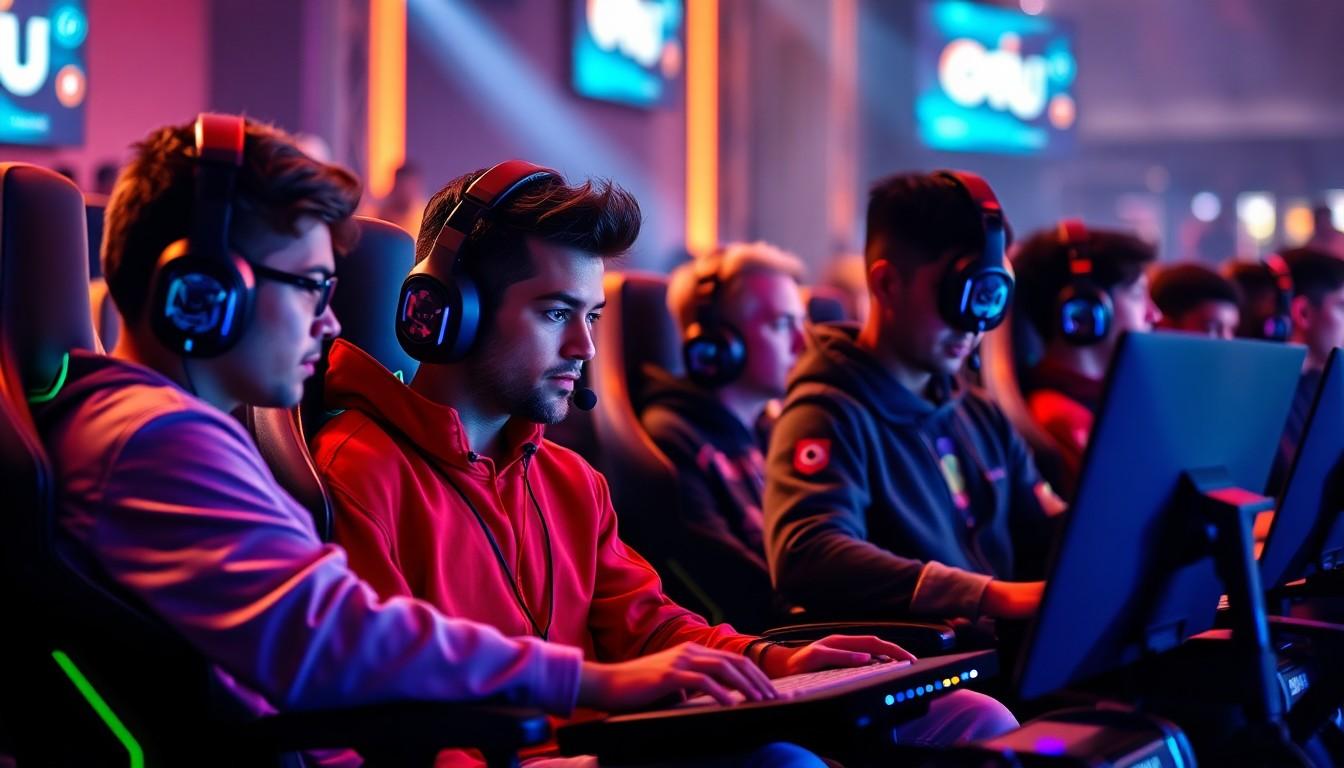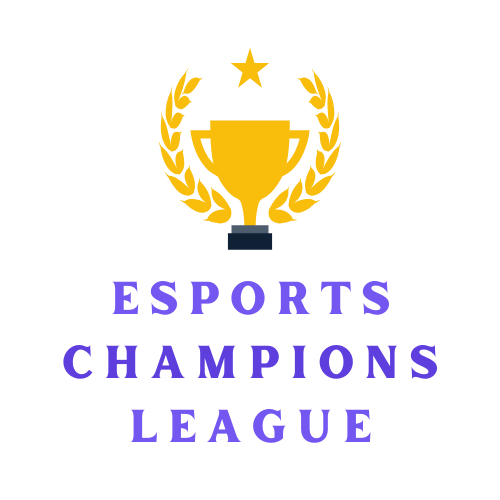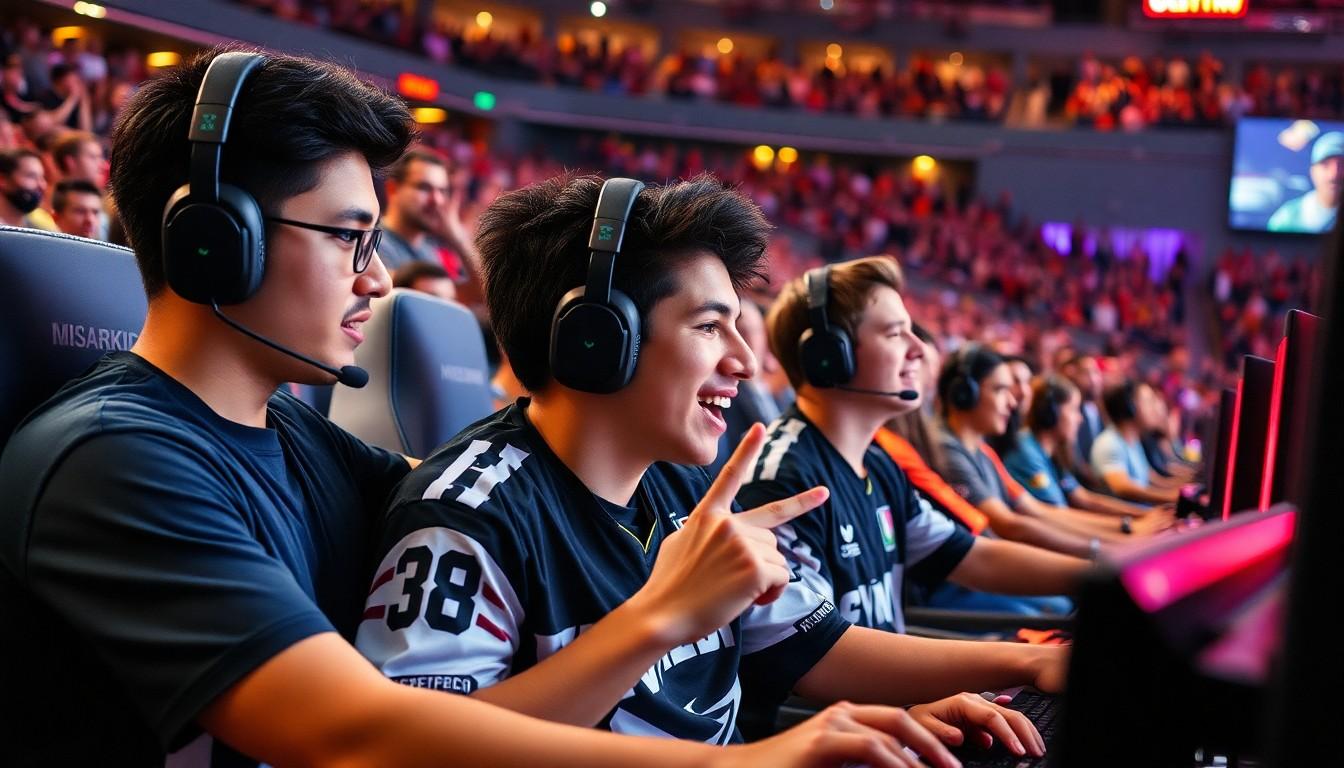Esports has taken the world by storm, transforming casual gaming into a powerhouse of competition and entertainment. But what games fuel this electrifying phenomenon? Picture this: a virtual arena where players battle it out in high-stakes matches, all while millions of fans cheer them on from the comfort of their couches. It’s like the Super Bowl but with more energy drinks and fewer commercials!
what games do esports play
Esports encompasses a wide array of games, each contributing to a diverse landscape. Multiplayer online battle arena (MOBA) titles like League of Legends and Dota 2 command significant attention. Competitive gameplay thrives in these games, characterized by strategic team play and rapid decision-making.
First-person shooters (FPS) also play a vital role, with titles such as Counter-Strike: Global Offensive and Overwatch leading the pack. These games emphasize precision shooting and teamwork, captivating both players and audiences.
Battle royale games like Fortnite and PUBG have gained enormous popularity, pushing players into intense survival scenarios. High-stakes competition drives these titles, enhancing viewer engagement and participation.
Real-time strategy (RTS) games, while less dominant, retain dedicated fans. StarCraft II stands out for its fast-paced action and intricate tactics, often featured in prestigious tournaments.
Fighting games also contribute historical significance to esports. Titles such as Street Fighter and Super Smash Bros. showcase individual skill and mastery,
Sports simulations, including FIFA and NBA 2K, attract fans of traditional sports. These games replicate real-world scenarios, allowing fans to engage in their favorite sports virtually.
Mobile esports also experience growth, with titles like Mobile Legends and PUBG Mobile carving out their niche. Accessible gameplay appeals to a broader audience, promoting competitive play on the go.
These diverse genres underline the multifaceted nature of esports, ensuring exciting competition and engaging experiences for players and fans alike.
Popular Esports Games

Esports features a variety of engaging games, appealing to a broad audience. Notable genres include MOBA, FPS, and RTS, each delivering unique competitive experiences.
Multiplayer Online Battle Arena (MOBA) Games
MOBA games dominate the esports scene with strategic team-based gameplay. Titles like League of Legends and Dota 2 stand out, allowing teams of five players to battle for control of the map. Each champion or hero offers distinct abilities, requiring teamwork and strategy. Competitive leagues for League of Legends attract millions of viewers, showcasing expert strategies and skillful plays. Dota 2’s annual The International tournament showcases substantial prize pools, emphasizing the genre’s popularity.
First-Person Shooter (FPS) Games
FPS games also enjoy significant popularity in esports competitions. Counter-Strike: Global Offensive and Overwatch lead the charge, featuring fast-paced action and teamwork. Players assume the roles of various characters, each with unique skills, adding depth to the gameplay. Competitive events like ESL Pro League for CS:GO highlight exceptional shooting skills and strategies. Similarly, Overwatch League brings together teams worldwide, further solidifying FPS’s place in esports.
Real-Time Strategy (RTS) Games
RTS games contribute to the diverse esports landscape with strategic depth and decision-making. StarCraft II remains a key player, emphasizing resource management and tactical gameplay. Matches often feature intense one-on-one battles, showcasing players’ skills in real-time. Global tournaments like the WCS allow top players to compete for titles and accolades. Despite emerging genres, StarCraft II retains a dedicated following, demonstrating the lasting appeal of RTS in competitive gaming.
Major Esports Tournaments
Tournaments serve as the pinnacle of esports competition, showcasing top talent and delivering thrilling entertainment to millions of fans worldwide. Various formats define these highly anticipated events, including single-elimination brackets, round-robin pools, and multiple stages encompassing group and playoff phases. These formats ensure fair competition and maintain excitement by allowing teams to demonstrate their skills across several matches.
Tournament Formats and Structures
Organizations frequently host tournaments across diverse platforms and game genres. Single-elimination formats allow teams to advance through a series of knockout rounds, while round-robin structures create opportunities for each team to compete against all others in the group. Mixed formats combine elements, offering flexibility and engaging gameplay with multiple match chances. Fans eagerly follow these seasons, as longer tournaments often build up to a grand final event featuring the best teams.
Notable Champions and Teams
Numerous teams and players solidify their positions as champions in the esports scene. Teams like Team Liquid and T1 have carved out their legacies with consistent performance across various titles. Notable players such as Faker and s1mple have captured the hearts of fans, known for their unparalleled skills and game-changing performances. These legends inspire aspiring talent while influencing the competitive landscape, creating a dynamic atmosphere in the esports community.
The Future of Esports Gaming
Esports gaming shows no signs of slowing down, projected to continue its rapid expansion. Analysts predict the global esports market will exceed $1.8 billion by 2024, driven by investments in teams, advertising, and sponsorships. Innovations in technology pave the way for immersive experiences, enhancing spectator engagement. Game developers play a pivotal role in evolving gameplay dynamics, introducing new titles and updates that captivate players.
Mobile esports ascend in popularity due to the accessibility of smartphones. Titles like PUBG Mobile and Mobile Legends have transformed casual gamers into professional players. Competitive leagues for mobile games gather significant viewership, rivaling traditional esports tournaments. This shift emphasizes the importance of adapting to the changing preferences of a diverse audience.
Major tournaments continue to capture global attention, featuring high-stakes matches in front of thousands of live spectators. Events like The International and League of Legends World Championship showcase not only skill but also the emotional narratives of teams vying for glory. These competitions foster community engagement through fan interactions and streaming platforms.
Unique partnership opportunities arise between brands and esports organizations, leading to creative sponsorships that resonate with fans. Brands increasingly recognize the value in connecting with younger demographics through this dynamic platform. Continued investment from mainstream media solidifies esports as a legitimate form of entertainment. As more traditional sports entities enter the scene, collaborations are likely to create cross-promotional events that enrich the esports ecosystem.
The future of esports gaming represents an exciting frontier that blends technology, entertainment, and community. Emerging trends and evolving gameplay will undoubtedly shape the landscape, ensuring that esports maintains its relevance in both gaming and entertainment sectors.
future of esports looks promising
Esports continues to reshape the landscape of competitive gaming and entertainment. With a diverse range of games spanning various genres there’s something for every type of player and fan. The excitement of tournaments and the rise of professional teams highlight the dedication and skill within this vibrant community. As technology advances and mobile gaming gains traction, the future of esports looks promising. It stands as a testament to the power of competition and collaboration in the digital age, captivating audiences and inspiring the next generation of gamers.

